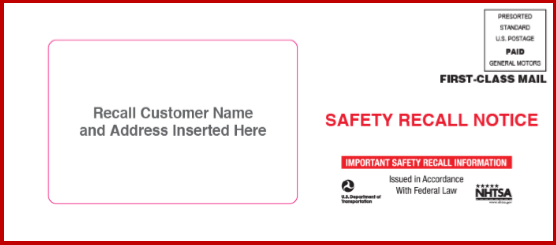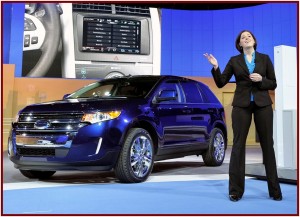
Automakers might solve the U.S. Post Office revenue problem because of all the recall notices they are now sending.
The pandemic in safety recalls – 64 million vehicles in the US during 2014, 32 million first seven months of 2015 – continues unabated. Several factors are in play. First and foremost is competition among automakers is forcing a concentrated search for scale for the obvious financial benefits of reduced piece cost. However, this is not without risk. Increased scale, simply put, amplifies problems and reduces the margin for error since the numbers are are so large.

Rather than improving safety, MyFord Touch actually degrades it. Customers are unhappy with the system.
It’s not just recalls – common systems across product lines that aren’t right can affect customer satisfaction and quality ratings. While Ford keeps claiming its people want electronic features such as MyFord Touch, saying 56% of them rate the technology as an “important” part of the buying decision, its quality and customer satisfaction ratings by actual users as measured by independent sources have plummeted during the three years since introduction. (Ford, Lincoln Change Touch Screens after Quality Ratings Dive)
The Takata air bag recall is a case in point. The common Takata design used by BMW, Daimler Vans – including Sprinter Vans labeled Mercedes-Benz, Dodge and Freightliner – Ferrari, Ford Motor, Honda, Acura, Mazda, Mercedes-Benz, Chrysler, Volkswagen and Audi means these companies are caught up in recalls that include vehicles equipped with driver-side air bag inflators that Takata has declared defective.
Passenger side Takata inflators are involved as well – 8.51 million Honda and Acura vehicles have been or now are subject to replacement of a Takata driver and/or passenger front airbag inflator in the United States. Honda has fired Takata as a supplier. Ultimately more than 100 million inflators could be recalled when all automakers are tallied. (See Honda Pays Largest NHTSA Fine in History for Takata and other Safety Cover Ups, NHTSA Whacks Takata with $70-200 Million Consent Order or NHTSA Probes buy valium tablets online Electric Power Steering Failures on 925k Ford Fusion, Lincoln MKZ, Mercury Milan Cars or GM Recalls 1.3 Million Cars for Bad Electric Power Steering)
The technology deployed to meet home market standards – the VW diesel emissions scandal is a case study here – has risks in itself when economies of scale lead to the violation, in VW’s case deliberate, of other market regulations. With VW facing $18 billion in EPA and CARB fines, the economies of scale turn into the opposite, in this case 600,000 U.S. vehicles that are illegal and company threatening fines and litigation. (See Volkswagen CEO, other Execs Knew of Diesel Scandal Months – if Not Years – Before Public Exposure of the Fraud and Diesel Stink – Volkswagen Postpones Annual Results Report)
Aside from risks in the regulatory universe, customer satisfaction or dis-satisfaction is also a factor. Local market tastes differ. Global applications, maybe spot on for the home market, can be compromised for other areas. Ultimately the sales risk for auto makers is that if a vehicle undersells in a market, it erases the alleged benefits of scale with plants operating at partial capacity.
Therefore, automakers need to be very careful where they put new plants, not only from a macro-economic point of view, i.e. the collapse of the Russia or South America economies currently, but also from a common component perspective that the pursuit of scale drives. There are genuine technology risks in drive systems, transmissions, emission controls, telematics and software and its vulnerability to hacking that local market customers need not be exposed to. Vehicle execution becomes key and forcing common vehicles on a market in pursuit of scale is risky.
Then, embarrassed regulators come into play, and a new trend – of being unpredictable in how compliance with regulations is checked, such as on-road testing as opposed to traditional test cycles (how VW got caught by the University of Virginia) that are easily circumvented, followed by large fines, class action lawsuits, and potentially criminal actions, and you have the current automotive landscape.

